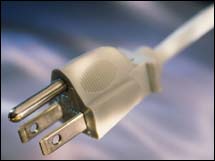|
Report: Taxes collected, but not paid
Electric utility customers required to pay for companies' income tax, even though many of those firms avoid paying what they collect.
NEW YORK (CNNMoney.com) - Many electric utilities are collecting money from customers to pay income taxes, and then never paying those taxes, according to a report published Wednesday. The New York Times reports that the practice is legal and defended by the companies as a smart business practice. But consumer advocates told the newspaper that the practice is wrong and that if the companies don't owe the taxes, then customers shouldn't be forced to pay for them as part of state-approved electric rates.
The newspaper reports that companies with electric utilities in at least 26 states have pocketed money intended for income taxes, and that utilities can legally do so in 21 more states. For regulated electric utilities, state regulators set rates based on a utility's costs, including taxes owed as well the cost of fuel and building new power plants. The Times reports that independent utilities like New York-based Consolidated Edison (Research) or American Electric Power (Research), which operates in 11 states, do pay the taxes they collect. But the newspaper reports that a growing number of utility companies are either moving into unregulated businesses such as energy trading or even aircraft leasing, then using those operations to shed tax liability. Companies that are avoiding paying some of the taxes they collect from utility customers include Pepco Holdings (Research), which the Times reports collected $435 million in taxes from 2002 to 2004, a period during which it did not pay any income taxes, and Xcel Energy (Research), which the paper said collected at least $723 million to cover taxes during that same period while receiving cash refunds of $351.4 million rather than having to pay taxes during those years. Anthony Kamerick, a Pepco vice president, told the newspaper that because the company could use the money it collected to pay taxes for unregulated investments, including new power plants, its electric customers eventually benefit by having lower cost power and lower rates. Ed Legge, a spokesman for Xcel, told the newspaper that the tax refunds it received resulted from a failed energy trading business. "Utility customers did not bear the risk of that business, and they should not benefit either," he told the newspaper. But there are critics of the practice as well. "Essentially, the utility rate payers pay the tax twice, once through the utility bill and again through the lost revenue to government that means either higher taxes for them or less government services," Minnesota Attorney General Mike Hatch told the newspaper. ________________
For a look at the investment potential of utility stocks, click here. |
|

